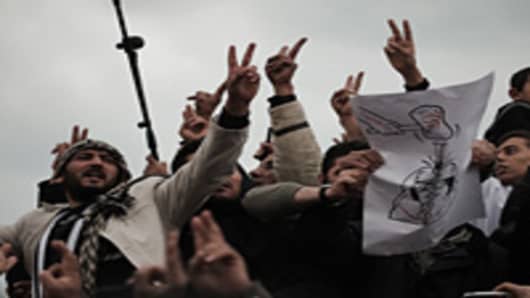Sir Howard Davies, one of the most enduring and successful figures in British public life, has resigned as director of the London School of Economics, after new details emerged of the institution’s relationship with Libya.
The LSE council, the university’s governing body, has also instigated a review of its conduct, which will be conducted by Lord Woolf, the former Lord Chief Justice who previously conducted an internal review into business practices at BAE Systems.
The world-class social science university, whose students, staff and alumni are influential across the globe, had become embroiled in an intensifying controversy about its links to Muammer Gaddafi’s Libyan regime.
On Thursday, the LSE revealed that a contract to train 400 Libyan professionals and public employees was worth £2.2 million ($3.6 million), drawing further criticism of the institution.
The Financial Times had also obtained fresh details about opposition from one of the university’s experts on the Middle East to the LSE’s acceptance of £300,000 in donations from a charity run by Seif al-Islam Gaddafi, the Libyan dictator’s son and an alumnus of the university.
Fred Halliday, an emeritus professor of international relations who died last year, wrote to the LSE council in late 2009 to say that Libya had made “no significant progress in protecting the rights of citizens, or migrant workers and refugees, and remains a country run by a secretive, erratic and corrupt elite”.
Sir Howard said on Thursday night: “I advised the council that it was reasonable to accept the money and that has turned out to be a mistake. There were risks involved in taking funding from sources associated with Libya and they should have been weighed more heavily in the balance.”
Sir Howard continued: “I made a personal error of judgment in accepting the British government’s invitation to be an economic envoy and the consequent Libyan invitation to advise their sovereign wealth fund.”
Sir Howard has served as a deputy governor of the Bank of England, chairman of the Financial Services Authority, head of the CBI and the Audit Commission. He also worked as a special adviser to Nigel Lawson, when chancellor of the exchequer, and worked at McKinsey.



